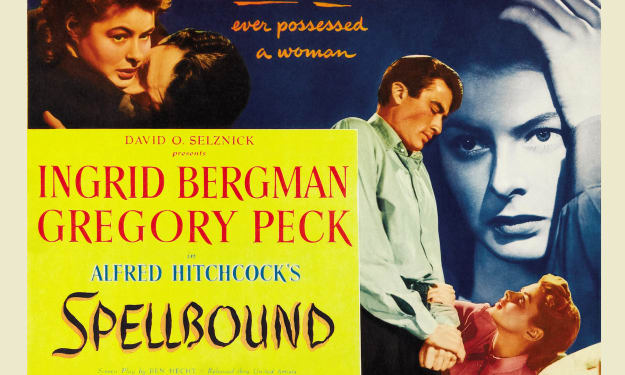6 Steps to Write Better Sex
Tips and Hints for New Erotica Writers

Writing erotica isn't for the faint of heart - whatever anyone tells you, there is a certain 'cringe' factor to writing a sex scene that doesn't really exist in any other part of fiction writing. Even those who are fairly experienced in real life can find themselves floundering when they first try to write a realistic and compelling sex scene. Why? Well, probably because it feels a little personal.
So, in many ways it's all about practice - actually writing or reading sex scenes will provide a sharp learning curve. However, there are a few changes that you can implement to elevate (almost) any sex scene immediately, and if you're already up to speed I have 6 more tips for writing great sex scenes.
6 Tips for Writing Better Sex Scenes

These 6 tips are very simple and can be implemented by making a few changes to an existing manuscript as well as when you begin to write a new piece. So, don't be afraid to haul out a few old drafts and see what a difference these changes can make!
Start Slow
Pacing is important in all aspects of writing (and life, actually), but when writing sex scenes it is doubly important. The pace that you set helps to establish the tone and atmosphere of the piece. What's more, pacing can help to determine the genre of your story when it comes to sex - in erotic fiction, sex scenes should be detailed and take up a much larger proportion of the word count than they would in a romance novel, for example.
In fact, if you're writing erotica sex may well make up the bulk of your story - depending on the length of the piece as a whole.
So, what are you trying to tell the reader? Is this a tender moment between well-established lovers? If so, slow the pace down, linger over the details, allow for more dialogue or even laughter to establish the comfortable connection that this pair has.
Or perhaps you're writing a frenzied, lust-filled coupling between two people who know they shouldn't be together? In this case, paint the scene in broad strokes, talk about the sensations and pin the moments in place with small details - a popped button here, a slip of the hand there. Match your pace to your intent and you'll find you get the results you want.
Establish Motivation
While erotic and adult romance is more forgiving than some other genres when it comes to establishing well-rounded characters, you should still make sure you have 3-dimensional characters with strong motivations. The sex-crazed plumber meets horny, penniless housewife trope went out with '70s pornos - paying readers expect some kind of motivation to make the characters actions believable.
Of course, that's not to say that you need to provide pages of context for every character. It can be as simple as,
Character A is lonely, Character B finds A attractive - they like each other, get drunk together, and 'something' happens.
Is this super complex? No, and it doesn't need to be. We don't need to make a huge leap to believe that two old friends who are comfortable with each other might sleep together if they get drunk under the right circumstances. Of course, if your characters are total strangers with a language barrier, you might need to allow a little more build-up to keep the scenario suitably plausible.
The good thing about establishing motivation is that it often helps in creating an end-point that isn't the literary equivalent of a fade to black after the literal climax.
Use All of the Senses
This is good advice for bringing any scene to life, of course, whether it is a grisly murder or a tearful reunion. In a sex scene, however, it is of paramount importance. Sex is a tactile experience that encompasses sight, sound, taste, smell, and touch - if you want to bring your reader into the scene, you need to touch on all of these senses.
For example, talk about light breezes on hot, sweaty skin, or the smell of perfume in a character's hair. You could even talk about distant sounds, if you want to create a peaceful atmosphere, or about laughter close by to give a feeling of danger during a semi-public quickie.
Your senses are very much your friend when it comes to any kind of writing, so take the time to think about the impact sounds, sights, tastes, and smells have on you, and then bring that into your work where you can.
Bring Your Readers Close
These days a macro point of view is very much out of vogue in fiction as a whole - people don't want a Tolkein-esque view of sweeping landscapes with tiny, distant people. More often than not, readers want to be in the trenches, so to speak, with their favourite characters.
Erotica is no different - writing a sex scene from a distance can be effective, in some cases, but when you want the reader to really get into the action, you need to bring them close. Close enough to whisper.
After all this:
The couple were pressed against the wall, locked in a passionate embrace that seemed as if it would set them alight. The man, heedless of his audience, pulled her blouse to the side and slid his hand under the neckline.
Sets a scene, but you don't feel very connected to it - do you? This is a passing scene in a period novel, or perhaps a side-note in a romance novel. It's evocative but hardly inspires lust.
Now consider this:
The wind whistled around her ankles, the cold brick pressed into her back, reminding her how exposed they were. John was oblivious - his hand slipped under her shirt, chilling her breast as his hot breath washed over her neck.
You can feel this.
Acknowledge the Scene You Set
Nothing is guaranteed to break immersion more than a sudden and inexplicable change of scenery mid or post-sex scene. If your characters start on a massage table, for example, you need to explain how they get onto the floor.
Many erotica authors fall into what I call the 'in-between' - a place where the reader assumes that the setting has not changed because the scene could plausibly take place there, but where the writer provides no details. Now, good sex can certainly make the world go blank, but you'd be a bit confused if you started off in the shower and suddenly found yourself in the back garden with no memory of the movement.
If you're writing a short story, being in the 'in-between' isn't the worst thing in the world - so long as your characters end up where they started. However, adding a few details that cement the setting, for example, the sound of the massage table legs sliding on the wood floor, can add depth to your scenes. Whatever you do, however, if your characters move, you must take the reader with them as they go!
Build to the Climax
I mean this in both the literal and figurative sense. Having the action end with inglorious speed is generally a tactic in comedic writing (whether or not this is fair), though you could very well use this tactic to showcase the importance of foreplay and touch... either way the speed at which you approach the literal and literary climax of a story is important.
Your reader and character are mirrored in sex scenes in a way that is uncommon in most other scenes. If you're writing about edging and denial or delay, you want to bring your reader to the same point of anticipation as the character in order to give a similar sense of satisfaction from the ending. Fudging your tension can cause reader interest to leak away in the same way that a bad move can ruin an orgasm. Think carefully about what you're doing - you want to build tension, not cause frustration.
This is something there is no hard and fast rule for. I urge you to read your writing and circle the points at which you lose interest or become frustrated - ask yourself why and play with your prose to see what you can do to make it work.
About the Creator
S. A. Crawford
Writer, reader, life-long student - being brave and finally taking the plunge by publishing some articles and fiction pieces.
Reader insights
Outstanding
Excellent work. Looking forward to reading more!
Top insights
Excellent storytelling
Original narrative & well developed characters
Heartfelt and relatable
The story invoked strong personal emotions






Comments
There are no comments for this story
Be the first to respond and start the conversation.